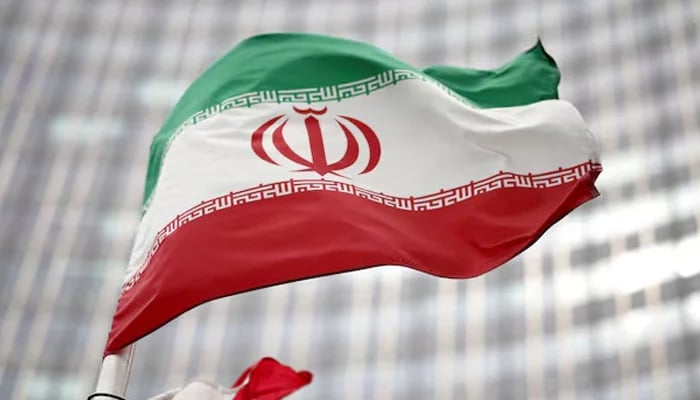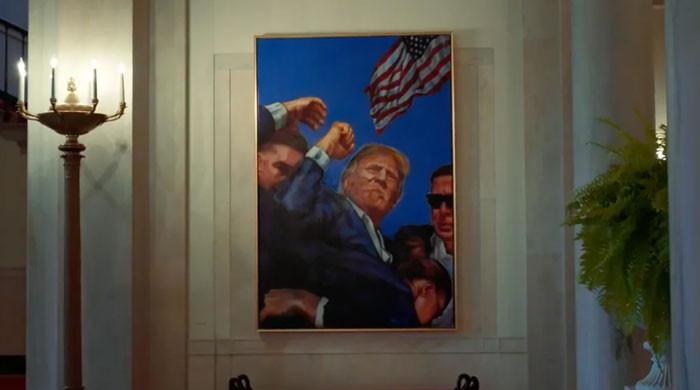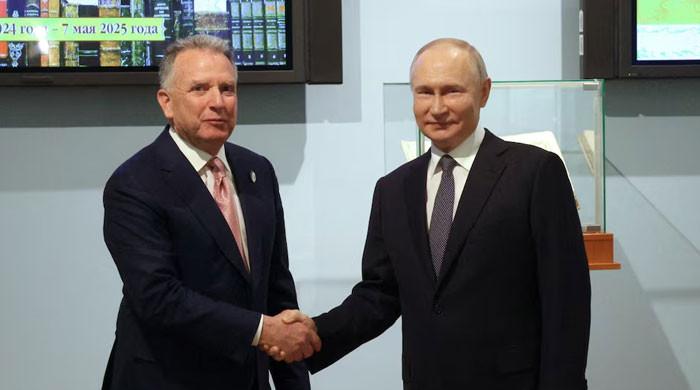Khamenei aide says Iran could expel UN nuclear inspectors ahead of US talks
Continuation of external threats may lead to deterrent measures, says Shamkhani
April 11, 2025

- Shamkhani says transfer of enriched materials also on cards.
- FM Araghchi will meet US envoy Witkoff on Saturday.
- Trump threatened military action if US-Iran talks failed.
A senior adviser to supreme leader Ayatollah Ali Khamenei warned on Thursday that Iran could expel inspectors of the UN nuclear watchdog as "threats" multiply ahead of key talks with the United States.
The comments from Rear Admiral Ali Shamkhani were the first from an Iranian official since US President Donald Trump said on Wednesday that military action against Iran was "absolutely" possible if talks failed to produce a deal.
"The continuation of external threats and Iran being in a state of military attack may lead to deterrent measures, including expulsion of inspectors from the International Atomic Energy Agency and cessation of cooperation," Shamkhani said on X.
"Transfer of enriched materials to secure locations may also be considered," he added.
Foreign Minister Abbas Araghchi will meet US Middle East envoy Steve Witkoff in the Gulf sultanate of Oman on Saturday in talks that Washington has presented as the last chance for a peaceful resolution of Western concerns about Iran´s nuclear programme.
Last month, Trump sent a letter to Khamenei, who has the final say in matters of state in Iran, calling for direct negotiations but warning of military action if the diplomacy fails.
"If necessary, absolutely," Trump told reporters Wednesday when asked if military action was an option. "If it requires military, we're going to have military. Israel will obviously be very much involved in that, be the leader of that."
Iran has maintained that it is against direct negotiations with its arch-enemy but has left the door open for indirect talks.
In 2015, Iran reached a landmark nuclear deal with major powers that gave it relief from international sanctions in return for restrictions on its nuclear activities monitored by UN inspectors.
But in 2018, during Trump's first term in office, the United States withdrew from the agreement and reinstated biting sanctions on Iran.
A year later, Iran began rolling back on its commitments under the agreement and accelerated its nuclear programme.











